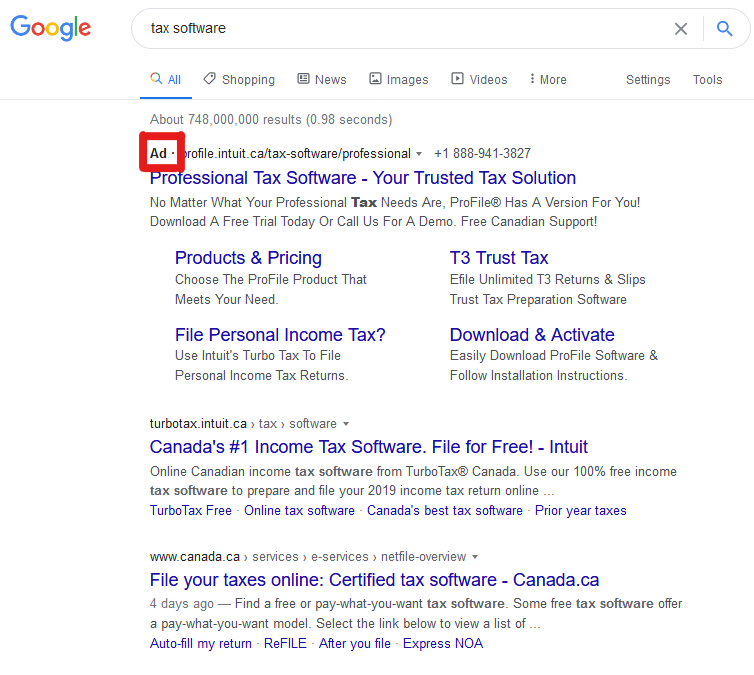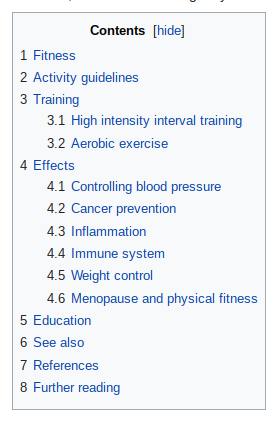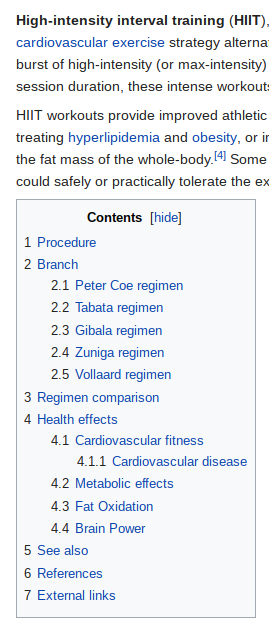
Are you new to keyword research? Great! I’ll tell you everything you need to know to get started doing keyword research.
Let me guess: you were at a work meeting, and someone asked you to do something called keyword research. At first, you thought, What is keyword research? You wrote down that mysterious term, and vowed to find out what it is.
Well, you’re in the right place. If I were to briefly try to define keyword research, I would say it’s discovering the words and phrases (and numbers) your ideal prospect types into a search engine.
As a side note, when I say search engine, I don’t only mean Google, Bing, and Yahoo. There are several other sites that may have search functionality that are not primarily search engines, but which have search functions that are heavily used.
A good example would be a shopping site like Amazon. Amazon is not, primarily, a search engine, but people do type into Amazon’s search box and perform searches like they would on Google.
The same goes for YouTube, Wikipedia, and many other sites.
Another thing to note is that keyword research is not necessarily an exact, completed science. Yes, this article will lay out some solid principles and techniques, but online marketing is ever-evolving, and we have to be willing to adapt to what’s currently in use.
So, within the context of this article, Amazon and other such sites can be considered search engines.
Anyway, let me take a step back and give you a bigger picture.

No doubt, you’ve pondered something, then gone to Google (or other appropriate search engine), and typed in what you were searching for. You probably typed in a model number, a question, the name of a local restaurant, or a myriad of other possibilities.
What you typed into the search field is known as a search query.
So, what do search queries have to do with keywords (or keyword phrases)?
I’ll get to that in a bit.
Let’s focus on you, or your company.
Presumably, if you’re reading this, you offer some sort of product or service to someone. That someone—the person who may be interested—is your ideal visitor, or prospect.
So, you have an offer, and you want your prospect to find you—that is, to find your web page (or ad, if you’re doing keyword research for advertising purposes).
Here’s the question: what search query will your ideal visitor type to try to find you, or your organization, or your business, or your offer?
And that, my friend, is where keyword research begins. Keyword research is exactly that—it’s research. It’s a simple, methodological way to discover the search queries that your ideal visitor uses to try to find your offer.
But be aware: keyword research can be a very deep subject. As this article is meant for beginners, I’ll try to only focus on the key concepts you need to know.

I’m going to start mentioning methods and tools you can use, but before I get there, I want to mention that you (or perhaps your prospect) may be the ideal person to begin with when it comes to identifying search queries.
So, just ask yourself: if I were my ideal prospect, what would I type into Google to find my offer?
With this question, it’s important to not make assumptions. Depending on your industry, may know the exact industrial term of a given product, but maybe your ideal prospect doesn’t—or, on the other hand, maybe they do, since they’re your ideal prospect who knows exactly what they want.
That’s one of the intricacies and nuance of keyword research—it can get very detailed.
Let’s say you run a dental clinic in Montreal, Quebec. A person searching for a dentist may type Montreal dentist.
So, that’s one possible keyword: Montreal dentist.
But why stop there?
Let’s say your clinic is in Montreal West. A person searching for a dentist may type dentist Montreal west.
Now, you may be wondering—Montreal dentist and dentist Montreal—does word order matter?
Yes and no, but since the search engines are getting better at determining search intent, word order (at least in this case) is not something I would worry too much about. Just use the word order that makes the most grammatical sense.
And that brings us to another point: different people may type in slightly different search queries to find your offer.
That begs the question: Is there a way we can begin to get a broader idea of the scope of search queries that many of our prospects may type into the search engines?
Keyword research tools (or simply, keyword tools) are websites and/or software that collect data from major search engines. Keyword researchers then use this data to try to get some idea of the search queries that their ideal prospect may type into the search engines.
There’s a wide range of data that one can gain from a keyword tool, and this depends primarily on what data the tool makes available. At the very least, the tool will usually tell you the search queries (from now on, I’ll just call them keywords or keyword phrases) that your prospects may be using.
In addition to potential keyword phrases, a keyword tool may also tell you:
There are many keyword research tools available, and among these, there’s a wide range of accuracy, functionality, and capability. When it comes to pricing, keyword tools can be free, come with a one-time fee, or a subscription.
So, keyword tools help you identify viable search queries that you may not have considered.
But, a comprehensive keyword research process not only includes the identification of keywords, but also considers the competition for each keyword phrase.

Competition can be thought of in terms of supply and demand: the more options a searcher has, the greater the competition.
That’s a very broad way of putting it. Let’s go a bit deeper…
When it comes to keyword research, particularly for search engines such as Google and Bing, competition can be placed into one of two categories:
In the image below, the search result that has the red square with it ( including it’s associated tabbed results), is an example of a paid result (it’s an ad).
The other results (the one that says “Canada’s #1 Income Tax Software” and the others) are organic search results. In other words, no one is paying for those results to be there.

You may already know this, but since we’re on the subject, it’s worth mentioning: depending on the search query, the results a searcher sees may be oriented to their physical location.
For example, in the image above, you see that the results are Canadian-oriented. That’s because I’m in Canada.
So, if you offer services that cater to specific neighborhoods, cities, regions, or countries, you may wish to take this into consideration.
Please note the red underline in the image below.

As you can see, the Google search engine results page (SERP) says that (for the search query, tax software) there are 748 million organic results (web pages) in Google’s index that cater to that term. Typically, this number only pertains to non-paid results. In other words, the webmasters who own these 748 million pages aren’t paying Google for inclusion in the results. (The advertisers are, but not the organic results.)
Now, the 748,000,000 figure is thought to be only a rough speculation. If you were to do some more in-depth keyword research, you’d might find that this number is nowhere near that high. However, for the sake of illustration, we’ll just go with this figure.
So, there are 748 million web pages in Google’s index that cater to this term. This number means that if you have a web page that offers tax software, your web page will be competing against 748 million other pages.
And…there are typically only 10 organic search positions on the first page of Google’s results.
That’s why good keyword research, identification of long-tail keywords, and a solid search engine optimization strategy are critical for those who wish to attract free traffic in today’s online business world.
Proper, in-depth keyword research helps you identify keyword terms that don’t have as much competition, which makes it easier for your site to be more prominently displayed in the search results.
Google has an advertising program known as Google Adwords. Basically, a business joins Adwords so that they can have their ads shown on results pages whenever someone enters a search query that pertains to that business’s offerings.
Generally, this type of advertising is known as pay-per-click (PPC) advertising.
That said, PPC is outside the scope of this article.
Earlier on, I gave an example of a search query that resulted in 748 million search results.
That figure is quantitative: no matter how accurate (or inaccurate) it may be, it’s a quick estimation of the number (quantity) of pages in Google’s index that Google thinks cater to that search query.
But that number, in and of itself, is not necessarily an indicator of the “strength” (or quality) of the competition–particularly of the pages that rank on the first page of the search results.
What I mean by “strength” is basically this: of the purported 748 million pages, how does Google determine which ones to show first?
There are many, many variables that determine this, and no one can claim to know exactly how Google’s algorithm works. However, many researchers have concluded that web pages on well-established, well-reputed sites tend to rank easier than pages on newer, lesser-known sites.
That said, if you have a newer, lesser-known site, there’s little need to despair: a good keyword research strategy will help you uncover keywords that fewer web pages cater to (known as low-competition keywords or, generally, long-tail keywords).
In fact, if your keyword research is thorough enough, you may find enough low-competition keywords that something dawns on you that you hadn’t considered before. This brings us to our next section…

What is a niche?
My short answer is this: a smaller group of people (within a larger whole) who may be underserved.
In marketing parlance, a niche refers to a sub-market that may have been previously unidentified or underserved by other businesses. Further analysis (ie: in-depth keyword research) may reveal that providing products and services to this sub-market is a viable business venture.
From a keyword research perspective, niche marketing can be beneficial because, assuming that you’re a “small” business without the massive budgets and resources of your larger competitors, you can provide offers to a niche market with much more ease than if you were to try to appeal to the larger market.
So, how do we use keyword research to identify a niche market?
I’m glad you asked.
There are 2 possible directions you have to consider when trying to discover a niche market: depth (vertically) and laterally (horizontally, looking across to see if there are other groups of people who would also be interested in your offer).
By that, I mean that you want to dig deeper to see if there are keywords that your competitors may have overlooked, and also, look across to see if there are other markets that may overlap with yours. (Looking across to other demographics or markets is we begin to enter blue ocean territory.)
Let’s consider an example using the Google Keyword Planner (GKP).
When you put a keyword in the planner, it will return closely-related keywords, but hardly any new keyword ideas.
For example, when you think “fitness” what are the first words that come to mind? Maybe…
…dumbbells….
…weight loss…
..biceps….
…Leg Day…
…sports.
But, when you put that keyword into the GKP, you get back:
…gym workout…
…exercise…
…workout…
…workout plans…
…workout routines.
In other words, GKP gives you keywords that are closely tied to the original one you entered.
This, in and of itself, isn’t bad. In fact, it’s good, because it helps you find closely related keyword terms that you may have overlooked.
But, for those who want to explore the possibility of niche markets, this can be a severe limitation. You see, the vast majority of the keywords you’re seeing are probably all the keywords that your competition are using. Not to mention that a lot of them are keywords that may not be related to the product you’re selling.
To really have the edge over your competition, you need to find keywords that may suggest the existence of a niche market.
Let’s say your company offers weight loss supplements. Weight loss supplementation–on the surface–is a well-known, sought out, and tough market to break into. Most of your competitors, especially the biggest ones, may target the keyword phrase, weight loss pill, or any other closely-related keywords that the Google Keyword Planner displays.
Though you may find a low-competition, versatile keyword in the results, it’s pretty unlikely that you’ll see the same powerful results that you’d get if you dove into a niche topic.
So, you offer a weight-loss supplement.
Can you further classify or specify this supplement of yours?
Is it a type of weight loss supplement that people are familiar with?
For example, is it not just a weight loss supplement, but more specifically, a fat burner?
There are probably studies that went into the development of your supplement. Did the studies show that men benefited more, or was it women who benefited more from the supplement?
It was women who benefited more?
Okay. And wait…your studies suggested that participants lost X amount of weight over a specific number of weeks?
Okay, so you’re not just selling a weight loss supplement that hundreds of other companies are. You have a fat-burning supplement with ingredients that studies suggest work best for women, and that participants lost X pounds over Y weeks.
So, ideal niche keyword phrases may be:
fat burning supplements for women
fat burning pills for women
lose 30 pounds in 3 months
(Although the keyword phrase having to do with losing 30 pounds in 3 months is more of an informational phrase than a product-oriented one, perhaps you can create how-to content on this subject, and offer your supplement as the perfect solution.)
Can you see how we’ve probably discovered viable niche markets?
And if you’re concerned that you might not make the same number of sales as a bigger, more established company, that may be the case. However, the trade-off is that people who are more specific about what they want (that is, those who type in niche keywords) are more likely to buy, because they know what they want, and you’re doing a better job of that than your large competitors.
Niche topics can be thought of as sub-topics that your target audience is highly interested in, and are within your broad niche.
Niche topics may be easily monetized, but, due to their smaller market size, don’t usually generate the number of visitors that a more broad subject might.
That said, when you add them all together, you can begin to move in the right direction, and you may have so many low-competition keywords that you won’t know what to do with all of them.
After you’ve established your niche topic, it’s time to find fitting keywords. This is the fun and easy part!
Now that you’ve got a good idea of what a niche market is, it should be fairly easy to determine niche topics in your niche.
A niche topic is just a topic that mirrors the demographic of your niche market.
So, if your niche market was fat burners for women, perhaps a related topic might be something that details the difference between fat loss and weight loss. (And yes, for those who are specific enough, there is a difference. A fitness competitor may want to lose fat while retaining muscle, and a bodybuilder may want to lose fat while building muscular weight. Hence they’d probably go for a fat burner.)
It’s a good idea to head into your niche with multiple topics. A handful of such keywords will give you a good start on your quest for effective topic selection that appeals to your ideal visitor.
If you can’t manage to come up with any niche topic off the top of your head, you can always ask yourself the question that you should always begin with…

It’s a good idea to always know your target market. What kind of customers do you want to attract? What problem does your product solve?
Ask yourself, If I had to create a detailed profile of a single person that best represented my market, how would I do this, while also not falling prey to certain assumptions that might exclude some of my other customers?
Yes, it’s a deep question. These are all things to consider when you’re creating your niche topics (and even better, when you’re beginning product development). Those questions are all great to ask, and it’s also a good idea to do your common target audience demographics.
Consider all of these:
This targeting method can be very rounded. You’ll sometimes find that in some niches, you’ll have multiple target audiences to monetize on.
Messaging boards (perhaps better known as forums) are places people go to talk about anything and everything. Though forums can be places where a lot of trolling takes place, they are also places where you can find many good niche topics.
Google’s search functions have a couple of hidden secrets. If you enter a query with “quotation marks” around the phrase, it will yield results that only contain what’s inside the quotation marks.
A good way to find an online board or forum in your niche is to open up a Google search and type “YOUR NICHE” + “Forum”.
This will locate all the forums in the Google database that have forums containing your niche.
When you find a forum, you’ll notice different categories or sections. Each of these can be niches, or topics. Click into any of those, and you’ll find threads that people have started. The titles of these threads make great niche topics!
Wikipedia is an underutilized tool for keywords. People don’t realize that Wikipedia returns results that are directly related to almost any search query you type.
If you type “fitness” into Wikipedia, you’ll see the following:

These may be potential niches.
Click on Physical fitness. You might see:

Now you’ve got potential niche topic ideas!
Click on “Training”, and scroll down to “High intensity interval training.”

Click the “HIIT” link.

You see, Wikipedia is one giant database of niche topic ideas. You can get many ideas for your niche topics on this site, and within minutes, you’ll be on your way!

Reddit is another online forum with tons of different topics.
If you go to Reddit, you can type in your niche. Click on the result that best corresponds to your sub-topic or niche. Potentially, there are a lot of discoveries to be made here. You can find hundreds of threads created by people who have a problem and are looking for a solution, and that solution can be what you offer.
Using these thread titles, you can hyper-target your niche topics to exactly what hundreds of people are already asking, seeing, and searching for! (And remember: those are only the ones who are on Reddit. Who knows how many others have this same issue, but maybe didn’t find Reddit.)
A good rule of thumb for filtering out the best of the best niche topics is to look for the threads with the most interaction. Of course, a thread with 20 comments is more likely shared by a greater number of people than a thread with 1 comment.
So, that’s a good introduction to keyword research. We hope you’ve found this article helpful. By now, you should know what keyword research is, how to start doing it, and how to identify a niche market that you can easily (or, at least more easily) create content for. Feel free to see our home page, which can lead to you a lot of resources you may find useful.